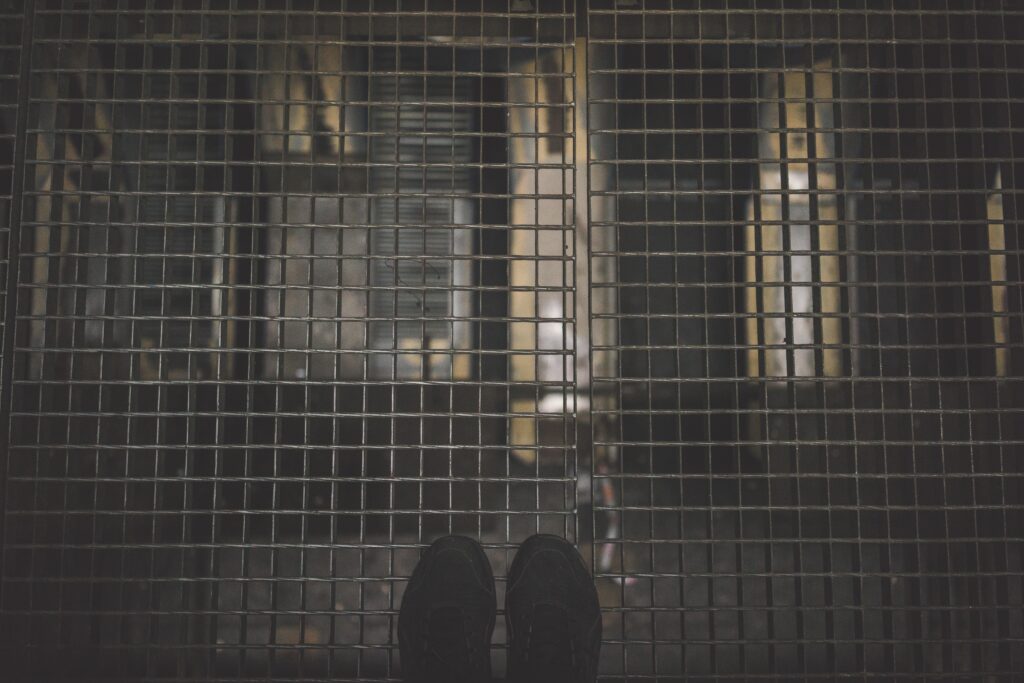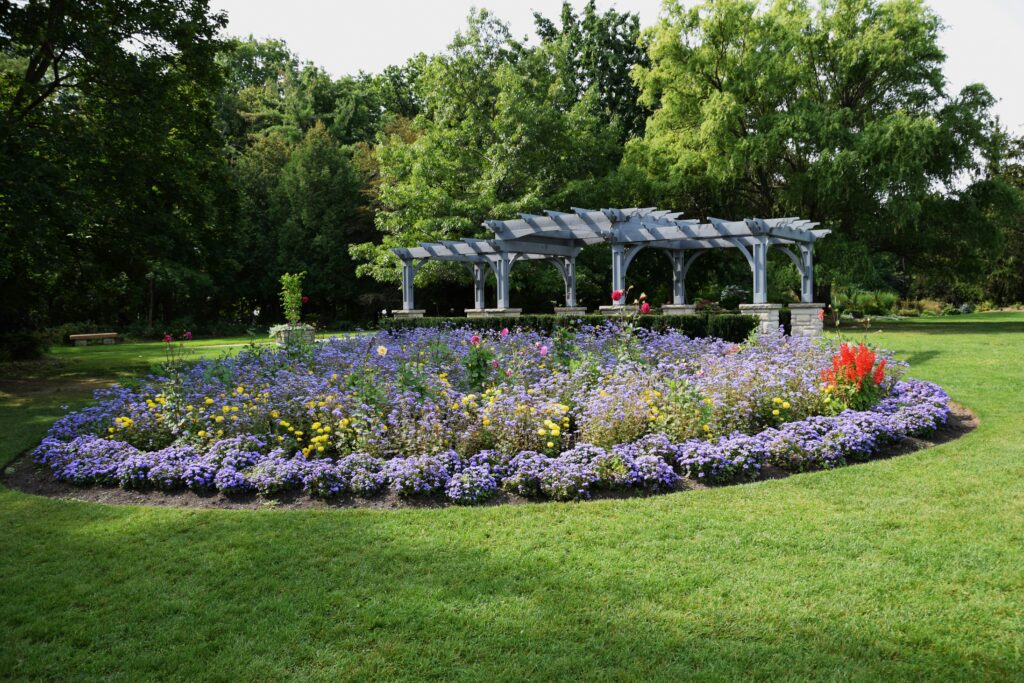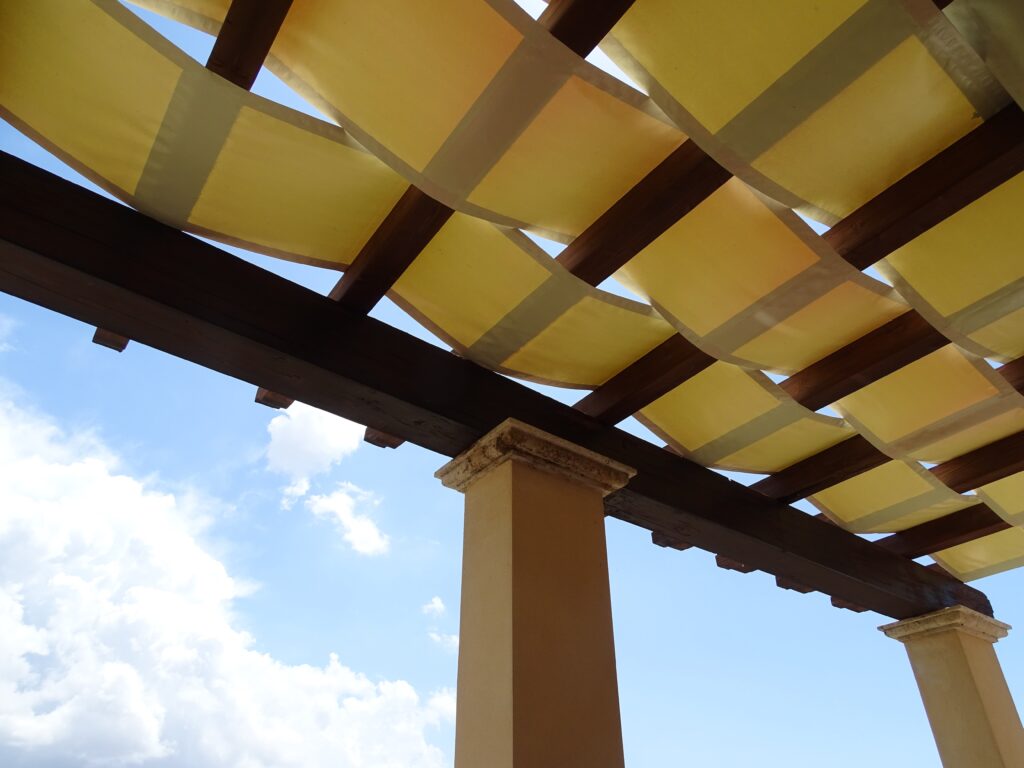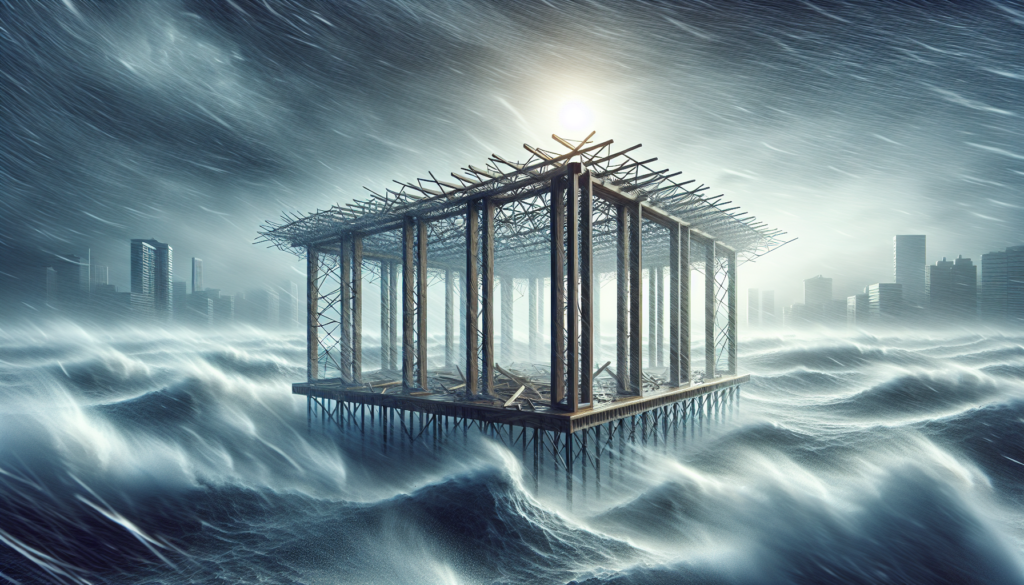When it comes to finding the perfect pergola for your outdoor space, it’s essential to consider the unpredictable elements of nature, especially strong winds. You want a pergola that not only complements your aesthetic but also stands strong against gusty conditions. In this article, we’ll explore some of the best pergolas on the market specifically designed to withstand high winds, ensuring that your outdoor oasis remains sturdy and beautiful, even on the windiest of days. So, let’s dive into the world of pergolas and discover the perfect fit for your high-wind needs!
What is a Pergola?
A pergola is an outdoor structure that consists of vertical posts supporting an open framework of beams and rafters. It typically provides partial shade and serves as a decorative element in gardens, patios, or other outdoor spaces. Pergolas offer a versatile and stylish way to enhance the beauty of your outdoor area while providing a comfortable and shaded space for relaxation or entertaining.
Definition of a Pergola
A pergola is often described as an arched or flat-topped structure that features an open framework. It may be attached to a building or stand independently in a garden or yard. The primary purpose of a pergola is to create a defined space for outdoor activities while allowing some sun and breeze to filter through.
Purpose of a Pergola
The purpose of a pergola goes beyond its aesthetic appeal. It can provide shade in hot summer months, allowing you to enjoy the outdoors while protecting you from harsh sunlight. Additionally, a pergola can serve as a support structure for climbing plants, such as vines or flowers, adding a touch of natural beauty to your outdoor space. Pergolas can also act as a focal point or a cohesive element in your landscape design, tying together different outdoor areas and creating a sense of unity.
Factors to Consider for High Winds
When choosing a pergola for an area with high wind conditions, several factors should be taken into consideration. Here are some essential considerations to ensure that your pergola can withstand strong winds and provide safety and durability.
Wind Resistance
The wind resistance of a pergola is crucial in areas prone to strong winds. Look for pergolas designed to withstand high wind speeds. These pergolas often have features such as reinforced beams or brackets, sturdy construction, and wind-resistant designs.
Material Durability
The durability of the materials used is another critical factor in high wind conditions. Opt for materials that are sturdy and resistant to weather elements, such as aluminum, vinyl, fiberglass, steel, or wood. Each material comes with its unique characteristics, advantages, and considerations, which we will explore in detail.
Ease of Installation
Consider the installation process and the complexity involved. A pergola that is easy to install can save you time and effort, especially if you plan to install it yourself. Look for pergolas with clear assembly instructions and components that are user-friendly.
Maintenance
Additionally, consider the maintenance requirements of the pergola. Some materials may require more upkeep than others. Familiarize yourself with the recommended maintenance procedures, such as cleaning, sealing, or painting, to ensure the longevity of your pergola in high wind conditions.
Design Options
Finally, consider the design options available. While the functionality and durability are essential, it’s also crucial that the pergola complements your outdoor space and personal style. Look for pergolas in a variety of designs, colors, and finishes to find the one that fits your aesthetic preferences.

This image is property of images.unsplash.com.
1. Aluminum Pergolas
Aluminum pergolas are a popular choice for high wind conditions due to their lightweight yet durable nature. Here are some advantages and considerations to keep in mind when considering an aluminum pergola.
Advantages of Aluminum Pergolas
- Lightweight: Aluminum pergolas are easy to handle and install due to their lightweight nature. This makes them a practical option, especially if you plan to install the pergola yourself.
- Durability: Aluminum is highly resistant to rust, corrosion, and rot, making it a suitable choice for areas with high moisture or salt air.
- Low Maintenance: Aluminum requires minimal maintenance, usually limited to occasional cleaning to remove dirt or debris.
- Versatile Design: Aluminum can be easily shaped and formed into various designs, allowing for a wide range of style options to suit your outdoor space.
Considerations for Aluminum Pergolas
- Heat Retention: Aluminum might absorb and retain heat more than other materials, so it’s essential to provide shade or use pergola accessories like canopy covers to minimize heat buildup.
- Structural Support: While aluminum is lightweight, it may not offer the same level of structural support as heavier materials. Consider reinforcing the pergola structure if you anticipate high wind speeds or heavy loads.
2. Vinyl Pergolas
Vinyl pergolas are another suitable option for high wind conditions. Here are the advantages and considerations to keep in mind when considering a vinyl pergola.
Advantages of Vinyl Pergolas
- Durability: Vinyl is resistant to rot, insects, and moisture, making it a durable and long-lasting choice for outdoor structures.
- Low Maintenance: Vinyl requires minimal maintenance, usually limited to occasional cleaning to remove dirt or debris.
- Easy to Clean: Vinyl is relatively easy to clean with just soap and water, making it an attractive option for those seeking low maintenance requirements.
- Fade Resistant: Vinyl is known for its ability to resist fading, ensuring that your pergola will retain its color and vibrancy for years to come.
Considerations for Vinyl Pergolas
- Limited Design Options: Vinyl pergolas may have fewer design options compared to other materials. However, manufacturers continue to introduce new designs and customization options to meet various style preferences.
- Expansive Temperature Changes: Vinyl can expand and contract with temperature changes, potentially affecting the pergola’s structural integrity. Ensure proper installation and consider reinforcement if necessary.

This image is property of images.unsplash.com.
3. Fiberglass Pergolas
Fiberglass pergolas offer a combination of durability and versatility. Here are the advantages and considerations to keep in mind when considering a fiberglass pergola.
Advantages of Fiberglass Pergolas
- Durability: Fiberglass is known for its strength and durability, making it an excellent choice for high wind conditions.
- Low Maintenance: Fiberglass requires minimal maintenance and is resistant to rot, insects, and weather conditions.
- Design Versatility: Fiberglass can mimic the appearance of wood or other materials, providing a wide range of design options to match your outdoor aesthetic.
- Lightweight: Fiberglass is lightweight yet sturdy, making it easier to handle during installation.
Considerations for Fiberglass Pergolas
- Cost: Fiberglass pergolas may be more expensive compared to other materials. However, they offer long-term durability, which can make them a worthwhile investment.
- Color Fading: Fiberglass might experience some color fading over time due to exposure to the sun’s UV rays. Consider using a protective coating or applying periodic sealants to minimize fading.
4. Steel Pergolas
Steel pergolas offer both strength and elegance, making them suitable for high wind conditions. Here are the advantages and considerations to keep in mind when considering a steel pergola.
Advantages of Steel Pergolas
- Strength and Stability: Steel is renowned for its strength, making it an ideal choice for areas with high wind conditions.
- Versatile Design: Steel can be easily shaped and formed, allowing for a wide range of design options. From modern to traditional styles, steel pergolas offer versatility in aesthetics.
- Longevity: Steel is highly resistant to pests, rot, and weather elements, ensuring that your pergola will stand the test of time.
- Customizability: Steel can be customized to fit your specific space requirements, whether you need a large pergola for entertaining or a smaller one for a cozy seating area.
Considerations for Steel Pergolas
- Rust Prevention: Steel is prone to rust, so proper coating or galvanizing is essential to protect it from moisture and humidity. Regular maintenance, such as repainting and sealing, can also help prolong its lifespan.
- Weight: Steel is a heavier material, which may require additional support and care during installation. Ensure that the foundation or supporting structure can handle the weight of the pergola.

This image is property of images.unsplash.com.
5. Wood Pergolas
Wood pergolas offer a classic and natural look that many homeowners appreciate. Here are the advantages and considerations to keep in mind when considering a wood pergola.
Advantages of Wood Pergolas
- Aesthetics: Wood provides a timeless and rustic charm, adding warmth and natural beauty to your outdoor space.
- Customizability: Wood can be easily cut and shaped, allowing for custom designs and sizes to suit your specific needs.
- Sturdy and Durable: With proper maintenance and treatment, wood can be long-lasting and withstand high wind conditions.
- Natural Insulation: Wood provides natural insulation, keeping the pergola cooler in hot summer months and warmer in colder seasons.
Considerations for Wood Pergolas
- Maintenance Requirements: Wood requires regular maintenance, including staining, sealing, or painting, to protect it from rot, pests, and weather damage. Consider the ongoing maintenance commitment when choosing a wood pergola.
- Cost: Wood pergolas may be more affordable initially, but it’s important to factor in ongoing maintenance costs and occasional repairs to ensure its longevity.
6. Retractable Pergolas
Retractable pergolas offer flexibility and adaptability, allowing you to control the amount of shade or sunlight desired. Here are the advantages and considerations to keep in mind when considering a retractable pergola.
Advantages of Retractable Pergolas
- Adjustable Shade: Retractable pergolas provide the option to control the amount of shade or sunlight you desire. You can retract the canopy during cloudy days or extend it fully on sunny days.
- Weather Protection: Retractable canopies can provide additional protection during light rain showers or help shield you from strong winds when extended.
- Versatility: Retractable pergolas offer versatility in outdoor use, allowing you to adapt the space for various activities and weather conditions.
Considerations for Retractable Pergolas
- Motorized Operation: Consider the convenience and cost of motorized retractable pergolas. While they offer ease of use, they may require electrical installation and maintenance.
- Fabric Durability: Opt for high-quality, UV-resistant fabrics for the retractable canopy to ensure durability and longevity, especially when exposed to the elements.

7. Pergola Anchoring Systems
Securing your pergola firmly in the ground is essential in high wind conditions. Here are the types of anchoring systems and how to choose the right one for your pergola.
Types of Anchoring Systems
- Concrete Footings: This is a common and sturdy anchoring system, where the pergola posts are set in concrete footings for stability.
- Ground Screws: Ground screws are screwed into the ground, providing stability and easy installation without the need for concrete.
- Post Brackets: Post brackets can be attached to an existing concrete or wood surface, serving as a secure anchor for the pergola structure.
Choosing the Right Anchoring System
When choosing an anchoring system, consider the soil type, local building codes, and pergola design. Consult with professionals or follow manufacturer guidelines to ensure proper anchoring and stability.
Conclusion
Choosing the best pergola for high winds involves considering a variety of factors, including wind resistance, material durability, ease of installation, maintenance requirements, design options, and anchoring systems. Each material, whether it be aluminum, vinyl, fiberglass, steel, or wood, has its unique advantages and considerations. By carefully considering these factors, you can select a pergola that not only withstands high winds but also enhances the beauty and functionality of your outdoor space. Remember to prioritize safety, durability, and your personal style preferences when making your pergola selection. Enjoy the beauty and relaxation that your new pergola brings to your outdoor living area, regardless of the wind conditions.

